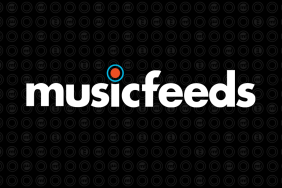If authorities thought policing illegal downloading or file sharing would be difficult, it’s proving to be even more challenging to prove one’s case in a court of law. Very recently, a US District Judge has thrown out around 1000 Subpoenas issued on behalf of Century Media Records in an attempt to prosecute those who had downloaded the recent Lacuna Coil album.
In a case that also involves BitTorrent, Century Media Records has called out 943 unnamed separate ‘John Doe’ file sharers who were implicated in the illegal distribution of the Italian Gothic metal band’s album Dark Adrenaline. All defendants were grouped together for the trial, which is where their case began to collapse.
Judge Faith S. Hochberg threw out all but one of the unnamed accused, explaining that the prosecutions did not have correct grounds by which to group all of the 943 people, stating that “there must be a connection between defendants beyond the copyrighted work and method of distribution, namely that defendants were involved in the same transaction with the same downloader at the same time.”
Hochberg will uphold the case for the first on the list of accused, John Doe. It is now up to the plaintiffs to individually target each of the defendants, who will need to go to trial one at a time – that will probably prove to be more trouble than it’s worth for the record company’s legal team.
According to Blabbermouth, the way these sort of cases normally roll is that a record label will hire a legal team, who in turn hire another team to track down IP addresses associated with the download in question. The courts will then issue a subpoena to the Internet Service Provider attached to the IP addresses harvested; it is now that the John Doe in question’s name is revealed. Once identified, that person will be contacted with the ultimatum of paying a few grand for the offense, or to lawyer up and fight the charges.
Rebecca Jeschke, a spokeswoman for the Electronic Frontier Foundation, has spoken out over the process, stating that “it’s tough. If you get one of these letters you’ve been put in a difficult and unfair spot…”In many of these situations,” she added, “the goal doesn’t seem to be to fight infringement; it seems to be to get settlements. That’s where the money-making is.”
You might remember a similar bundled case involving Nuclear Blast Records, who attempted to sue people for downloading the latest All Shall Perish album, without the band’s permission. Once the band caught word of what was happening, their record company withdrew all complaints.










